Applications for COPE Ombudsman
COPE is looking to appoint a new Ombudsman to ensure that COPE carries out its stated mission in a fair, expedient, and transparent manner, and that its Council and Trustees are acting in the best interests of the organisation and its members. Applicants should not be a member of COPE.
For more details, including now to apply, see here: http://publicationethics.org/news/applications-cope-ombudsman
New COPE discussion document on consent for publishing case reports
COPE has published a new discussion document ‘COPE guidance on best practice for consent for publishing medical case reports’. The discussion document aims to lay out the principles that a consent form should generally include, and to collect examples of sample forms so that editors can develop a form that suits their purpose.
As with all of the COPE discussion documents, we welcome feedback, and we encourage journal editors and publishers to comment (whether or not they are COPE members). Please email all comments to Natalie Ridgeway, COPE Executive Officer.
COPE North American Seminar August 10, 2016 "ETHICS IN PEER REVIEW".
COPE is delighted to announce its 7th North American Seminar, which will be held in collaboration with ISMTE (International Society of Managing and Technical Editors), on Wednesday August 10, 2016, at the Hilton Philadelphia City Avenue, Philadelphia, PA USA.
The theme of this year's seminar is “Ethics in peer review”. Editors, publishers, authors and all those interested in publication ethics are welcome to attend.
The seminar will include invited talks, in addition to workshop sessions in the afternoon.
The full program will be available shortly.
Sampling the ethics stew in Berlin: APE2016
Report by Bernd Pulverer (EMBO Press) and Chris Graf (COPE)
January is traditionally a period of Siberian chill in Berlin—one might think weather fit for discussing research ethics and reproducibility. Yet this year the sun appeared determined to shine throughout the proceedings of the 16th episode of the ‘Academic Publishing in Europe’ (APE) conference and one was thus tempted to approach the ever more pressing issues around research integrity and ethics with a positive disposition.
APE2016 ended with a spirited ‘ethics’ discussion by publishers, ranging from very large to very small, representing a range of the natural sciences (chemistry, physics and molecular biology), news reporters, editors and publishers*.
We outline here a number of observations that proved to be recurrent themes. The panel explored the distinction between research misconduct, which remains rare, and the more frequent incidence of ill informed, sloppy experimentation or incomplete, misleading presentation of such experimentation in the literature (often referred to as ‘beautification’, which can be a frequent problem, for example, in molecular biology). Furthermore, the much discussed erosion of reproducibility was highlighted as an issue that needs to be considered in relation both to research integrity and beautification. As Fred Dylla (American Institute of Physics) remarked, beautification and reproducibility is less of an issue in physics, while fraud occurs at a low (and possibly fairly stable) rate across the sciences.
There are, we postulated, a number of causes for the apparent rampant rise in misconduct, if the rapid rise in incidence of retractions and online commenting are considered a measure. Certainly there is more scrutiny of what is published. Certainly there is more pressure to publish at all costs and fast, which may translate into more mistakes, but also the cutting of corners and, indeed, misbehaviour. It was noted that the more visible the research and the journal, the higher the scrutiny, so reports on the apparently disproportionate rise of retractions in some journals need to be interpreted with caution. Nevertheless, the rush for publication in the small subset of journals emphasised by a metrics driven research assessment was highlighted as a key concern.
The discussion moved on to the role of publishers, journals, and editors, the absence of effective policing and whether ‘punishment’ is something ever to be meted out by journals through forced retraction. Rather, the discussion emphasised the need to encourage—and maybe incentivise—author initiated correction of the literature.
We touched on how peer review is foundational, yet often misunderstood, and how it must evolve rapidly, to keep pace with rapid change in researcher needs and publishing technology. What place is there for peer review in the self-correction of science? Do journals need to invest in addition layers of quality control to complement peer review and prevent unreliable research findings from entering the literature in the first place? And is science really reliably self-correcting, anyway?
The discussion pointed to systemic deficits in ethical research reporting that have to be addressed both by better training in responsible research conduct and by better policing.
There is the tendency of the press to be drawn to scandal, which can provide a skewed public opinion of academic research and risks eroding trust; the responsibility and ethics of the quality news reporting was addressed.
It seems that the heart of the problem is culture. Affecting cultural change is a long game, but one thing is sure: the solution lies in collaboration across the research ecosystem, and no one (or two) interested parties alone will make an impact. Journals are the last checkpoint before publication and thus they have a special responsibility to police the quality of the information they chronicle. Constructive resolution of issues before or after publication requires reciprocal and transparent interaction between journals, researchers, and institutions.
One important take home from the panel discussion is certainly that the issues are real and present, that they transcend all areas of research and that all stakeholders need to act in a concerted manner to rediscover a culture of publishing research for the purpose of sharing reliable research findings.
……………
*Discussion panel at APE2016:
Dr. Bernd Pulverer, EMBO Press, Heidelberg; Peter Gölitz, 'Angewandte Chemie', Wiley-VCH, Weinheim; Anne Kitson, Elsevier, Oxford; Richard Van Noorden, Springer Nature, London; Chris Graf, COPE and Wiley-VCH; Catriona MacCallum, PLOS
Against Plagiarism
COPE research grant recipient Helen Zhang, has published a book, Against Plagiarism. Helen and her colleagues have published several papers in addition to this book based on work that was partly funded by the COPE research grant.
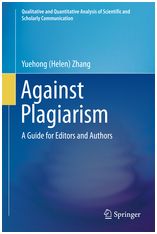
COPE workshop at 13th EASE Conference 10 June 2016
COPE will be running a workshop on Friday 10 June 2016, during the 13th European Association of Science Editors (EASE) General Assembly and Conference, which will take plact at the School of Medicine, Strasbourg, France. The main theme of the conference is “Scientific integrity: editors on the front line” along with many other hot topics. There will also be pre and post-conference practical workshops, and the conference will run from 10 to 12 June 2016. The COPE workshop will cover handling publication ethics issues, peer review misconduct and retractions.
Registration is now open. For more details and to register, see here.
COPE logo: two versions now available
Your unique COPE logo, which you can download for your journal or website, is now available in two forms—both with and without the date you joined COPE.
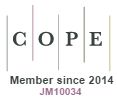
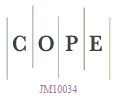
On the COPE website, you can download a COPE logo with your membership number included and the date you joined COPE or a version with your membership number included but no date. Having the COPE logo in your journal or on your website demonstrates that you are a genuine member of COPE, and will send a signal to authors and reviewers that your journal upholds the highest ethical standards, that you intend to follow COPE’s Code of Conduct and that you will take appropriate action in cases of possible misconduct.
If you want to add some wording to your logo, we usually suggest the following: "This journal is a member of, and subscribes to the principles of, the Committee on Publication Ethics (COPE) http://publicationethics.org/"
You can download the logo at optimised resolutions for print or the web.
Here’s how to do it:
- Log onto the COPE website as a member (you need to be the "manager" of your journal group)
- Go to your journal page.
- On the right hand navigation bar, click “COPE logo download”.
- Download low and high resolutions of your personalised COPE logo.
 Two themes dominate the newsletter: data sharing and correcting the scientific record and the long time this may take. Sharing clinical trial data is laudatory, and the ICMJE proposes to require authors to share with others deidentified individual patient data no later than 6 months after publication. However, as Liz Wager points out, the process is costly, and requires considerable time and effort to establish and maintain repositories with well defined anonymisation and managed access procedures. Also, ethics committee approval is required as well as informed consent from study participants. This is especially important as it may be possible that individuals could be re-identified from genetic and genomic data when combined with other information that is publicly available. It is encouraging that leading global health bodies, including academic journals, NGOs, research funders and institutes, have committed to making data on Zika available (eg, Nature, Science, New England Journal of Medicine, BMJ, JAMA, The Lancet) free of charge, as soon as is feasibly possible. Journal signatories provide assurance that doing so will not preclude researchers from subsequently publishing papers in their titles. Data sharing was also the discussion topic of the recent COPE Forum—a full report will appear in next month’s Digest.
Two themes dominate the newsletter: data sharing and correcting the scientific record and the long time this may take. Sharing clinical trial data is laudatory, and the ICMJE proposes to require authors to share with others deidentified individual patient data no later than 6 months after publication. However, as Liz Wager points out, the process is costly, and requires considerable time and effort to establish and maintain repositories with well defined anonymisation and managed access procedures. Also, ethics committee approval is required as well as informed consent from study participants. This is especially important as it may be possible that individuals could be re-identified from genetic and genomic data when combined with other information that is publicly available. It is encouraging that leading global health bodies, including academic journals, NGOs, research funders and institutes, have committed to making data on Zika available (eg, Nature, Science, New England Journal of Medicine, BMJ, JAMA, The Lancet) free of charge, as soon as is feasibly possible. Journal signatories provide assurance that doing so will not preclude researchers from subsequently publishing papers in their titles. Data sharing was also the discussion topic of the recent COPE Forum—a full report will appear in next month’s Digest.

 Data sharing costly and not as easy as it seems
Data sharing costly and not as easy as it seems Leading global health bodies, including academic journals, NGOs, research funders and institutes, have committed to sharing data and results relevant to the current Zika crisis
Leading global health bodies, including academic journals, NGOs, research funders and institutes, have committed to sharing data and results relevant to the current Zika crisis Reproducibility: A tragedy of errors
Reproducibility: A tragedy of errors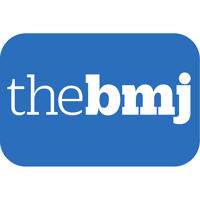 Statutory regulation needed to expose and stop medical fraud
Statutory regulation needed to expose and stop medical fraud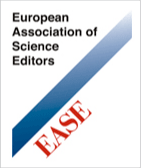 EASE guidelines for authors and translators of scientific articles to be published in English
EASE guidelines for authors and translators of scientific articles to be published in English A social networking site is not an open access repository
A social networking site is not an open access repository Risks to participants in phase 1 clinical trials
Risks to participants in phase 1 clinical trials Blood, toil, tears and sweat: academics’ trying previous jobs
Blood, toil, tears and sweat: academics’ trying previous jobs

